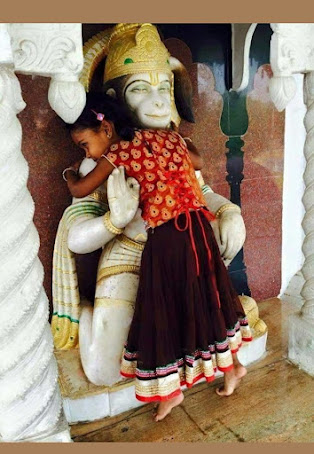You’ve Always Been Here But I’ve Just Got To Know You….
Up on a mountain, tucked away in a beautiful corner of the country, in an old school with sun streaming class rooms, sat little girls at heavy much-used teak desks. Sharpened pencils in hand, rulers and erasers close by, awaiting the subject they had to write on.
What I Want To Be When I Grow Up was usually most popular with English teachers and also with Sister Carmelis, by every standard a good educator and a popular nun.
Generations of students swore by her and returned in the summers to say hello, pay their respects, get their cheeks pinched and then leave their daughters in her charge.
Like an aged much-loved star she had a few classic lines –
Naughty, naughty baccha.
No shaitaini.
And how she was loved for it.
After all it’s not everyday a British woman gave up her life of privilege in her country and came all the way to India to teach native children, in the service of Christ.
We woke up to the Lord’s Prayer. Said Grace before meals three times a day and Hail Mary at bedtime. All with fevour and respect.
However, when the lights were switched off and homesickness got the better of some of us, we whispered our Gayatri Mantras.
Her classes however, were a part of the day that we looked forward to.
Besides pronunciation and articulation we were taught to be Little Ladies and not as she said, Bold Pieces.
At least once a term her class was expected to write on What I want To Be When I Grow Up…..
Simple enough you would say, but not as simple as you will see.
The basic rules of essay writing were elucidated in her brisk, crisp, Scottish burr.
The introduction.
The body
and the conclusion.
In the introduction we were expected to give the reader an impression that we had given much thought to the subject and then made an informed decision on what we wanted to eventually be.
In the body of the essay we were to reveal our ambition.
Well, not ambition exactly, as that wasn’t a ladylike virtue.
Neither could we say – want, because that was selfish.
So yes, wish was more appropriate – What I Wish To Be When I Grow Up.
And if one chose a historical personality to serve as an example then that would be as Sister Carmelis would say – Simply Perfect !
Now as most students know there’s no point in rocking the boat and raising hackles over nothing. The entire exercise of this education was to obtain good marks, please the teacher and in the bargain please the parents when they saw the report card.
Keeping these three points in mind What I Wish To Be When I Grow Up was determined.
Through a method of elimination all seventeen of us knew who we didn’t want to be.
Noor Jehan – devious & ambitious.
Mumtaz Mahal – only remembered in death.
Helen of Troy – cause of a war & probably a Bold Piece.
Laxmi Bai – fought the British. (Hello, Sister Carmelis was British. Want to fail, what ?)
Marie Curie – at age ten we had still to wrap our heads around what she had discovered.
Till we hit upon Florence Nightingale – British social reformer & founder of modern nursing. Yaaay !
The Lady With The Lamp found much enthusiasm in our class and we all wanted to be like her.
The conclusion of the essay thus emphasised how we believed in selflessness, devotion and hard-work. In fact a calling from God himself.
Erm… which God ? Sister Carmelis’s God, of course.
______________________________________________________________
A common thread which ran through colonised societies was the ability of the upper classes to cope being astride two diametrically opposed cultures and being constantly fed that they belonged to the inferior one.
So the Brown Sahib who took over at Independence from the Burra Sahib was not only proficient in the Sahibs language but perhaps even better at it. However, having spent a lifetime being obsequious Brown Sahib never allowed Burra Sahib to think so.
Dropping the occasional quote or a verse of poetry just to impress enough & being clever to feign ignorance in matters of his own belief and faith.
You can still recognise the progeny of these Brown Sahibs when they speak to compatriots not proficient in English. A noticeable decibel louder as if one is speaking to the deaf.
Kaise ho Krishan Lal ? Sab theek hai ? Kal bete ko bhej dena… dekhte hain kahan laga sakte hain …
In the early years, post Independence and upto the late 70s Indian children in English medium schools, especially the missionary ones were up on Wordsworth, Robert Frost & Shakespeare.
Very few even knew of Kalidas, Tulsidas & Munshi Premchand more than the perfunctory single or half chapter of their Hindi reader.
Yes they did sing Tagore’s English translation of Where The Head Is Held High….
They were fined if caught speaking a ‘vernacular language’ and were expected to remove every vestige of their faith & festivals- raakhi, mehndi, gold wire piercing in tender ears.
On the other hand, Easter eggs were enthusiastically painted & Nativity Scenes with Mangers were the norm before school closed for Christmas holidays.
Our top boarding schools which churned out bureaucrats, judges, military men, lawyers, leaders, future teachers, influencers, rarely encouraged their students to show or learn about themselves.
It just wasn’t cool.
Familial influences in day schools helped but the boarding school lot had brief interactions with grand parents and perhaps the extended family in the winter holidays to imbibe customs, beliefs or any festivals that fell during that period.
But seventy years on what is unforgivable is that our education methods and syllabi haven’t moved with the aspirations of those born free. The colonisers have left but we remain chained….
Our own literature and classics lie unknown to our children and have no place in their education. Our whitewashed, sanitised history is another subject altogether. A knowledge of Latin is obligatory to understand ancient texts whereas here Sanskrit is relegated to an old shelf.
Even today many speak our own languages with what we believe is an accent.
One has to see most Delhi based English channel anchors, journalists (with some notable exceptions) struggle in Hindi and bring down the level of questioning to aap ko kaise lag raha hai ?
Or worse to talk down to a panelist who isn’t as fluent in English as the rest.
The unnatural ness of it just doesn’t strike them.
In this limited, closed world of denying our identity, Atheism is a corner one can hide in and yet give scathing, uninformed comments without ownership.
From Sister Carmelis’s class it gives ‘an impression that we have given much thought to the subject and then made an informed opinion’.
Hanuman is suddenly aggressive.
Ram is regressive. Krishna was haha! a Casanova!
13th century Jauhar is discussed and ridiculously nuanced and compared with 21st century isms and sensibilities.
(That said – a question worth asking is – Why hasn’t Easter reduced some women to an egg? After all the festival is a celebration of a woman’s fertility )
The easy slide between Atheism and practise is also astounding.
Very few ‘Atheists’ are known to opt for a registered marriage. They meticulously plan and go through the entire mehndi, sangeet, haldi, sehra, traditional ceremony with a pandit around the fire. The now on and now off convenient Hindu, aka Atheist, also remembers the Griha Parvesh, for luck.
Nothing wrong in that at all because Hinduism has space for the doubters and part-timers too. But why judge the more consistent ones?
Is it any wonder then a revival and pride in Hinduism scares them?
They know nothing of it.
It’s not only a mirror of their own lack of knowledge of the subject but also the arrogance of a class that believes that without the vetting of their Historians, their Social Commentators & their Influencers there cannot be a movement or pride in something of our own. And worse, they believe what kind of revival is this that includes the unwashed masses?!?
Humare time main sub apna apna jagah janta tha…
“The most serious blow suffered by the colonized is being removed from history and from the community. Colonization usurps any free role in either war or peace, every decision contributing to his destiny and that of the world, and all cultural and social responsibility.”
― Albert Memmi, The Colonizer and the Colonized




I had the misfortune of being imprisoned (yes, IMPRISONED) for a number of years in a boarding school in a hill station.
ReplyDeleteI got sent there straight from a government school. So it won't be hard to imagine the trauma it was. A school tailor regularly got the Hindi newspaper Navbharat Times which he gladly let me read. But only once! The awful fuss, the cruel bullying, "Oy you! Matribhaasha!" "This chap reads Hindi!" (Horrors).
The senior students had been brainwashed sufficiently to ridicule Hindu beliefs and desi pronunciation of the sahib's language. The common motor vehicle was not a carr - it was a khaah.
It was bad enough trying to learn an alien tongue. It was worse having to forget the Hindi paharas (multiplication tables) and relearn then all over again in English. Believe me, they're easy to learn in Hindi or Punjabi than in English. In English it is comparatively easier to break stones with a loose handled hammer. Or with your own head.
But blessings sometimes come heavily disguised. In my case the family business fell on hard times and i had to be paroled out. The Kendriya Vidyalaya where I went next was like a breath sweet fresh air.
I'm not a great advocate for boarding schools... !
ReplyDeleteBrilliant as always and so true! Coming from a strict convent school I can only now realise the unnaturalness of it all. Back then it was normal!
ReplyDeleteBrilliantly sums up everything that I have felt for quite a while.
ReplyDelete